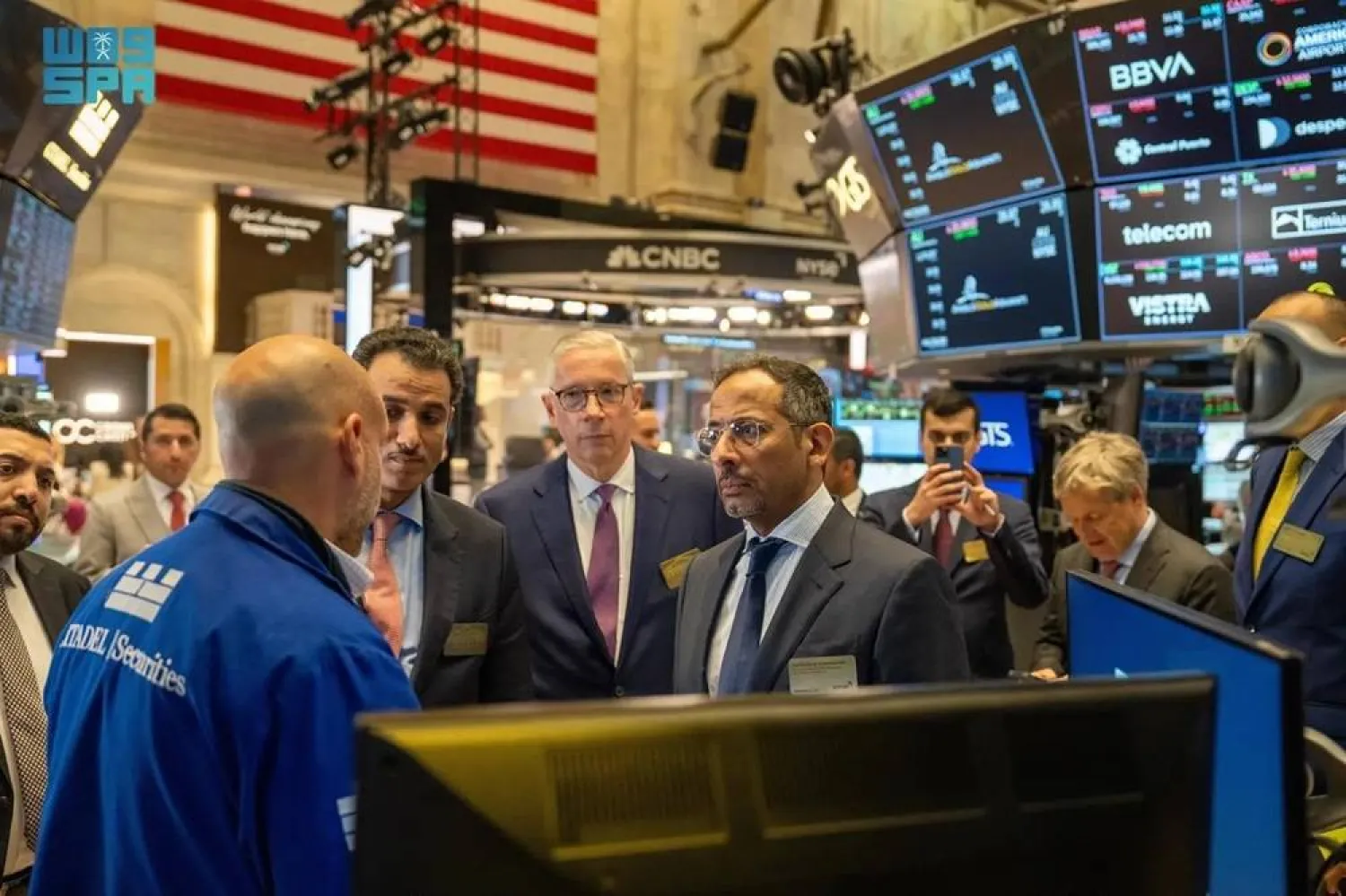Saudi Minister of Industry and Mineral Resources Bandar Alkhorayef visited the New York Stock Exchange (NYSE) on Tuesday.
He was briefed on its latest electronic systems for evaluating companies and sectors, learned about the exchange's history, trading mechanisms, and purchasing processes, and the best practices adopted to enhance efficiency and competitiveness.
Established in 1792, the New York Stock Exchange represents one of the largest exchanges globally, with a market capitalization exceeding $30 trillion. Traders can buy and sell shares of listed companies through an auction-based system facilitated by securities brokers on behalf of clients.
The exchange is renowned for its stringent listing requirements and transparency, offering high levels of investor protection. Operating primarily in the United States, it also has offices in Asia, the Middle East, and Europe.
Furthermore, during his visit to New York, Minister Alkhorayef welcomed industry ministers and leaders of industrial transformation from around the world during an event organized by Saudi Arabia in partnership with the United Nations Industrial Development Organization (UNIDO).
The event served as a precursor to hosting the 21st General Conference of the organization in Riyadh in 2025, as well as the Multi-Party Industrial Policy Forum (MIPF) 2024.
Alkhorayef invited global industry leaders to participate in these events, offering an opportunity to develop innovative industrial solutions and policies that support regional and global industrial development.
Alkhorayef’s official visit to the United States, which will continue until September 28, aims to boost industrial and mining cooperation, strengthen bilateral ties between the two countries, attract quality investments to the Kingdom, and explore investment opportunities in promising sectors, notably aviation and aerospace.









